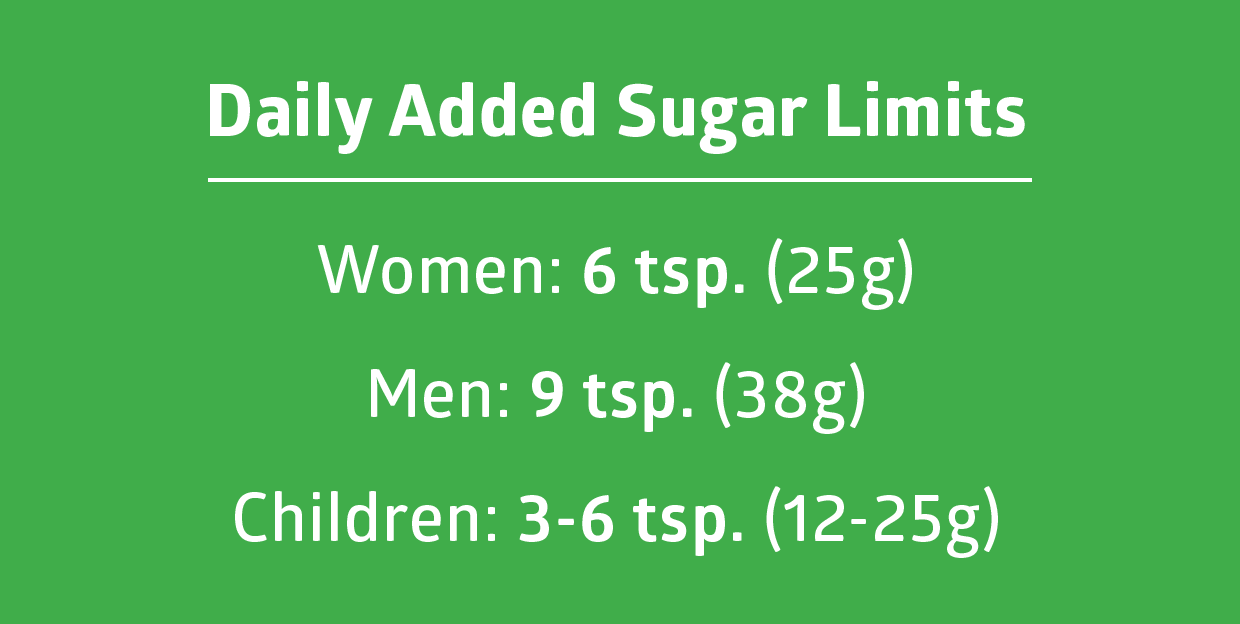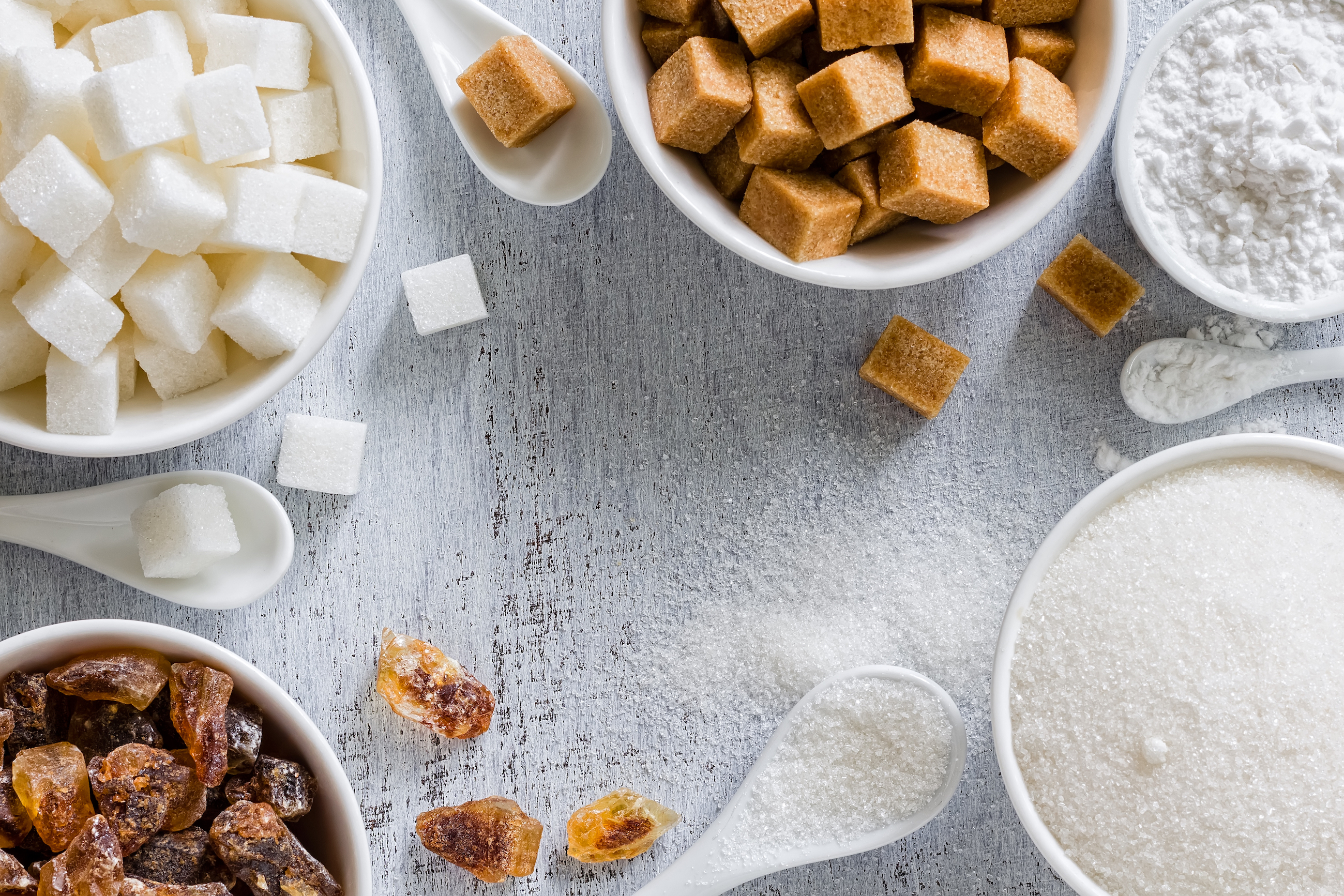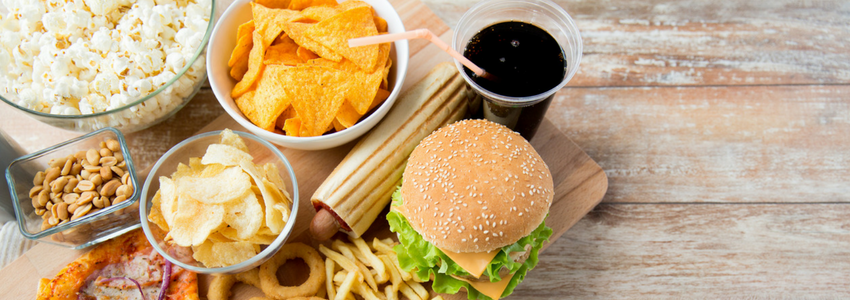You might want to reconsider that weekly pasta bake…
…at least until you’ve read about what excessive amounts of added sugar can do your body, and your bones.
You see, added sugar is hiding in lots of foods that you wouldn’t expect. Including that savory pasta sauce! And research shows that consuming excessive amounts of high sugar foods increases the risk of:
- Type 2 diabetes
- Colon cancer
- Fatty liver disease
- Weight gain
And the sugar industry has known the health risks all along. The Sugar Research Foundation buried scientific research back in the ’60s that suggested sugar is associated with heart disease and cancer.
So they obviously don’t prioritize your health…
And that’s not to mention the damage excess sugar does to your bones! It impacts the way your body absorbs and uses four key bone-building nutrients (we have a whole section on sugar and your bones a little further down). But in short, excess sugar ultimately depletes your stores of these nutrients and weakens your bones.
8 Secret Sugar Foods You Need To Know

Now, the American Heart Association recommends the following daily intake of added sugar:
No more than six teaspoons (25 g) for women. And no more than nine teaspoons (38 g) for men. At AlgaeCal we recommend zero added sugar, unless you’re very active.
But get this…
…ultra-processed foods are responsible for close to 90% of people’s added sugar intake and nearly 60% of people’s overall daily caloric intake. That’s a huge percentage of your daily nutritional value!
People don’t realize how much added sugar they’re actually taking in. You see, food manufacturers can hide the presence of sugar on a nutrition label under one of at least 60 different names:
| Different Names of Sugar | |||||
|---|---|---|---|---|---|
| Agave nectar | Caramel | Dehydrated cane juice | Yellow Sugar | Maltodextrin | Raw sugar |
| Barbados sugar | Carob syrup | Demerara sugar | Glucose solids | Maltol | Refiner’s syrup |
| Barley malt | Castor sugar | Dextrin | Golden sugar | Maltose | Rice syrup |
| Barley malt syrup | Coconut palm sugar | Dextrose | Golden syrup | Mannose | Saccharose |
| Beet sugar | Coconut sugar | Evaporated cane juice | Grape sugar | Maple syrup | Sorghum syrup |
| Brown sugar | Confectioner’s sugar | Free-flowing brown sugars | HFCS (High-Fructose Corn Syrup) | Molasses | Sucrose |
| Buttered syrup | Corn sweetener | Fructose | Honey | Muscovado | Sugar (granulated) |
| Cane juice | Corn syrup | Fruit juice | Icing sugar | Palm sugar | Sweet sorghum |
| Can juice crystals | Corn syrup solids | Fruit juice concentrate | Invert sugar | Panocha | Treacle |
| Cane sugar | Date sugar | Glucose | Malt syrup | Powdered sugar | Turbinado sugar |
Some are lab manufactured, some are natural, and others are refined, but at their core, they’re all sugar. So discover our list of the top 8 secret foods high in sugar!
 Tomato Products
Tomato Products
Tomatoes naturally contain sugar, though their inherent acidity masks a lot of their sweetness. One cup of raw tomatoes has 4–5 g of natural sugar.
But when raw tomatoes are turned into shelf-stable products like ketchup and tomato sauce, the amount of sugar skyrockets. Your typical bottle of Heinz ketchup has 4 g of sugar in every tablespoon. That works out at 64 g of sugar for every cup of ketchup! A massive spike compared to the same quantity of fresh tomatoes.
Pasta sauce is less concentrated, but still typically contains around 18 g of sugar for every cup of sauce. When you consider that every teaspoon of sugar equals four grams, it’s easy to see how quickly you can reach your recommended daily limit. (Remember, the recommended daily limit for women is 25 g and men is 38 g.)
One way to control the amount of sugar in your tomato products is to make your own. Pasta sauces are easy to make and can be customized to suit your personal taste. Look for recipes that include tons of extra veggies. It will add extra nutrients, as well as heaps of extra flavor.
 Low-Fat Yogurt
Low-Fat Yogurt
You’d think that a low-fat version of something would be healthier than the full-fat version, right?
But that’s not always the case. As we can see with yogurt.
You see, fat gives yogurt some of its flavor. So when manufacturers remove the fat in a low-fat version, they’ll often replace it with added sugar to maintain that sweet flavor.
Research shows that low-fat and non-fat varieties of yogurt have significantly more sugar per serving than their full-fat equivalents.
A look at the nutritional labels for Dannon yogurt corroborates these findings. According to the USDA Branded Food Products Database, Dannon’s whole milk yogurt option has 4.9 g of sugar per 100 g serving. For the same amount of yogurt, the non-fat options averaged around 7 g of sugar. And some of the low-fat varieties had more than 14 g!
Research has even shown full-fat dairy products don’t have a negative impact on metabolic syndrome in adults, despite guidelines recommending limited full-fat dairy intake. Metabolic syndrome is linked to the development of cardiovascular problems and type 2 diabetes.
 Flavored Coffee
Flavored Coffee
There are a lot of misconceptions about coffee. But the good news is that it isn’t bad for your bones.
In fact, two separate studies published in the American Journal of Epidemiology and the Journal of Korean Family Medicine found little to no connection between coffee consumption and bone mineral density.
That said, the amount of sugar you add to a simple cup of coffee is a problem. One individual non-dairy vanilla creamer from International Delight contains 5 g of sugar.
And it gets even worse if you like a dash of syrup with your caffeine kick. The nutritional label of Torani’s ‘French Vanilla’ coffee syrup lists 19 g of sugar for every tablespoon. Torani’s ‘Classic Vanilla’ has 20 g of sugar. And the ‘Signature Vanilla’ option has a whopping 23 g of sugar in every tablespoon of syrup.
Let’s put that into perspective. A single tablespoon of the ‘Signature Vanilla’ syrup (23 g) contains nearly a full day’s worth of recommended added sugar (25 g).
If adding flavor is an important part of your morning coffee routine, some brands make sugar-free versions of their coffee syrups. Or you could look to natural sources of flavor instead. There’s the added incentive of whole-body benefits with some natural flavorings too. For example, cinnamon and cloves are both recognized for their antioxidant properties. As is vanilla extract. They all taste great without providing any of the added sugar too.
 BBQ Sauce
BBQ Sauce
Another condiment to be watchful for is BBQ sauce.
Like ketchup, this hamburger staple can come loaded with added sugar. Traditional and homemade BBQ sauces rely on molasses for that sweet, syrupy taste. But that’s not the case with store-bought BBQ sauce. Molasses is usually substituted for a cheaper alternative, like glucose-fructose.
Just two tablespoons of store-bought Bull’s-Eye BBQ sauce can contain more than 11 g of sugar/glucose-fructose.
Even more alarmingly, sugar is often the first ingredient listed on the label of store-bought BBQ sauces. Makes you wonder what other artificial ingredients are lurking in that bottle.
 Health/Sports Drinks
Health/Sports Drinks
Flavored waters marketed with added vitamins and minerals are popping up everywhere.
But a lot of these so-called ‘health drinks’ have high amounts of added sugar.
Sports drinks like Gatorade are particularly bad when it comes to added sugar. They can have far more than a full day’s worth in a single serving. The reason for that, is that these drinks are specifically designed for elite athletes to replenish energy and electrolytes during intense workouts. They’re not designed for the average person out walking the dog.
Your best bet for hydration is a steady intake of water — be it plain, sparkling, or infused with fruit and herbs. Sounds simple, but it works! Sparkling water is a great substitute for anyone craving the bubbles that come along with soft drinks. While fruit infusions can add flavor, natural sweetness, and nutrients.
If you’re looking for a workout recovery drink to help replace lost electrolytes, opt for homemade alternatives with natural ingredients and no added sugar.
 Canned/Pre-made soup
Canned/Pre-made soup
For a savory meal, pre-made soup can sure have a lot of sugar in it. A single serving of Campbell’s ‘Creamy Tomato’ soup (27 g) contains almost 3x as much sugar as an ‘Original Glazed’ doughnut (10 g) from Krispy Kreme!
Sugar, dextrose, and even caramel are common label ingredients in pre-made soups. As well as huge quantities of sodium- which can lead to high blood pressure and even heart attack- and hard to pronounce chemical ingredients.
Pre-made tomato soups tend to be the worst offender for added sugar, but they’re not alone. Most pre-made soups contain at least 3-6 g of added sugar. But there is an easy alternative… make it yourself!
Making a batch of homemade soup can be as easy or complex as you want it to be. Some soups take hours of chopping and simmering, while others can be thrown together in a matter of minutes. No matter how long it takes you to make, homemade soup is sure to be a healthier alternative to pre-made, store-bought options.
To help get you started, check out our delicious 8-Ingredient Broccoli and Spinach Soup and our Butternut Squash, Carrot, and Apple soup. Adding apple and carrot is a great way to bring in complementary sweetness without sacrificing any of the nutritional value!
 Bottled Smoothies
Bottled Smoothies
We’re big fans of smoothies here at AlgaeCal. But despite being packed full of healthy fruit, they’re not always as good for you as you might think.
A ‘Green Machine’ smoothie from Naked brand contains a whopping 53.0g of sugar! Granted, that’s just one example, but the sugar content in store-bought smoothies is generally high across the board.
So why are we such fans of smoothies? Because we make our own! And they don’t just contain far less sugar… they’re full of bone-building ingredients too! You can also control the sugar content of your smoothies by making them at home. Plus, you can make a big batch to keep you going for a few days.
Check out our “3 Smoothie Recipes to Build Better Bones” post to get started. Our Ras Buster Smoothie only contains 10.3g of sugar, and it’s absolutely delicious. Tip: We like to use frozen zucchini as a replacement for common smoothie fruits like banana. It lowers the sugar level without losing the flavor.
If you want to learn more about smoothies that utilize veggies over fruit, read our “Are Green Smoothies Good For You?” post too.
 Granola
Granola
Granola is often seen as a healthy breakfast option, but in reality, it’s more like a dessert!
In fact, the Dietary Guidelines Advisory Committee actually class granola (at least in bar form) as a grain-based dessert. What’s worse, this category took #1 spot in the ‘Top 10 Sources of Calories in the U.S. Diet.’ And it’s not hard to see why…
One cup of Nature Valley ‘Oats ‘N Honey Protein Granola’ contains 24g of sugar per cup! Not all granolas contain such a high amount, but it’s something to watch out for on the nutritional information label.
There is an easy (and delicious) way to get your granola fix without the sugar hit though. Make your own! Our delicious gluten-free granola recipe is 100% customizable (including a sugar-free version) and can be put together in a matter of minutes. It bakes in under an hour and can be stored in the fridge for up to a month too.
What’s so nice about making your own granola is being able to control exactly how sweet it is and where that sweetness comes from. You can add calcium-rich nuts and seeds, and free radical-fighting antioxidants like cinnamon and vanilla to boost the health benefits. And as an added bonus, you’ll save money making your own over buying a store-bought package.
Sugar and Your Bones
We’ve talked about how added sugar can hurt your body, but what impact does it have on your bones? Well, added sugar can lead to osteopenia and osteoporosis over time. You see, sugar depletes four of the best bone-friendly nutrients in your body.

Calcium
Calcium combines with phosphorus to make calcium phosphate, the main component of our bone mineralization. That’s why calcium helps improve bone mineral density and slows the rate of bone loss in postmenopausal women by 30–50%!
Research shows that too much sugar increases the excretion of calcium by your kidneys. Even if you aren’t calcium deficient, you still risk losing your calcium deposits with consistent sugar consumption.
Vitamin D
Vitamin D assists proper absorption of calcium into your bones. You may also know that it’s often difficult to get enough vitamin D from your diet alone. And if you eat a lot of sugar, you may be further robbing your bones of precious vitamin D.
Excess sugar increases an enzyme (24-hydroxylase) that breaks down vitamin D, and decreases the hormonal form of vitamin D (1,25 (OH)2D3). The result is a vitamin D deficiency.
Vitamin C
This powerful antioxidant helps combat inflammation throughout your body. Vitamin C keeps renegade osteoclasts (your bone-resorbing cells) from removing more bone than they naturally should. Vitamin C also plays a major role in forming collagen. And collagen is a vital protein in the bone matrix.
Excess sugar can restrict vitamin C from doing its job. In fact, glucose (a simple sugar) and vitamin C fight for the same biological pathways into your cells. So high glucose levels can actually crowd out helpful vitamin C molecules from entering your cells. This can also lead to a weakened immune system and vulnerability to autoimmune disease.
Magnesium
Magnesium works hand-in-hand with calcium to build strong bones. It affects both your bone-building and bone-resorbing cells by regulating your body’s bone remodeling process. So low magnesium levels can cause bone loss.
And did you know one of magnesium’s other functions is to actually regulate blood sugar levels? Magnesium can push excess sugar into cells where it’s disposed of and trigger insulin secretion to battle the sugar. But this is where excess sugar consumption can amplify your bone density problems.
You see, high sugar levels can cause magnesium to excrete from your kidneys, just like it does with calcium. And when you have high sugar levels, it’s like a vicious cycle for your bones.
High blood sugar causes low magnesium, and low magnesium causes bone loss. So consuming too much sugar is a double-whammy for bone health: Too little magnesium perpetuates high blood sugar, and vice-versa.
While cutting down on sugar is highly advised, removing it from your diet altogether is difficult. So it’s a good idea to make sure you’re getting enough of these four bone-building nutrients to ensure sugar won’t begin to harm your bones.
AlgaeCal Plus provides plant-based calcium along with effective doses of magnesium and vitamins C, D3, K2!
And here’s the best part. When you take AlgaeCal Plus with Strontium Boost (our Bone Builder Pack), you won’t just be protecting yourself from the effects of sugar… you’re guaranteed to increase your bone density is as little as 6 months!
The takeaway isn’t to completely avoid sugar-containing foods, but rather focus on whole foods whenever possible. And choose sources that are nutrient-dense like berries, carrots, or snap peas when you’re craving something sweet.
 How can you reduce or eliminate added sugar?
How can you reduce or eliminate added sugar?
Begin by looking at your diet. Keeping a food journal can help you track what you eat over the course of a week. Once you have a good snapshot of your eating habits, go through it piece by piece. What foods and drinks on your list have added sugar?
If it’s not a whole food like fresh meat or produce, do some homework by looking through the ingredients. Read nutritional labels or search the USDA database to find your answers. You’ll rarely find “added sugar” as a label ingredient, so remember to look for words like corn syrup, glucose, fructose, dextrose, molasses, or nectar.
Once you know where your added sugar is, you can start making healthy changes.
Simple switches, particularly opting for homemade over store-bought, can make a huge difference in the amount of sugar you add to your daily diet.
If you want to stay in the loop with the latest research on sugar and health, the University of California San Francisco has a great resource. ‘Sugar Science’ provides a comprehensive review of over 8,000 scientific studies on sugar!
Have you come across a food that you were surprised to find had added sugar? Let us know in the comments section below. We’d love to hear any low sugar alternatives, or tips to avoid sneaky added sugar too!





Sunny
August 18, 2018 , 6:44 amWhat about the artificial sweeteners. I don’t use them, but I know a lot of people who do. Is this a safe alternative?
I try not to eat too much food that has added sugar.